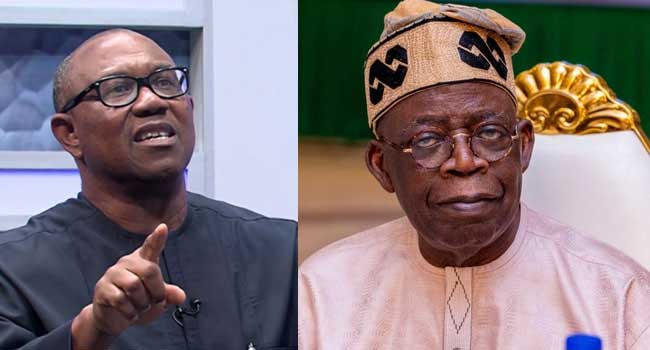The presidential candidate of the Labour Party, Peter Obi, has pulled clear of his All Progressives Congress (APC) counterpart, Bola Tinubu, in the North Central geopolitical zone in the latest poll released by the Anap Foundation ahead of the 2023 presidential election.
It is the second poll conducted by NOI Polls Limited and commissioned by Anap Foundation after an earlier poll in September.
Many political analyst have identified the North Central as one of the few zones that could decide the 2023 presidential election in February.
In the September poll by Anap Foundation, Obi was tied with Tinubu at 16% in the North Central with Atiku Abubakar of Peoples Democratic Party (PDP) scoring 9% and Rabiu Kwankwaso of the New Nigeria People’s Party (NNPP) scoring 2%.
However, in the latest poll released by Anap Foundation, Obi pulled clear of Tinubu in the North Central scoring 24% which represents 8% increase from the September poll while Tinubu scored 9%, a 7% decrease from the last poll.
Anap Foundation President, Atedo Peterside disclosed this during a television chat on Wednesday.
According to him, Atiku also recorded a slight decrease in the North Central zone in the latest poll, recording 8% compared to the 9% he recorded in September while Kwankwaso went from 2% in the last poll to 1% in the latest poll in the zone.
Overall, Obi led the other top three candidates with 24% which shows a 3% increase from the 21% he led with in the September poll. Tinubu’s overall score remains unchanged as he got same 13% he scored previously, while Atiku’s score reduced to 10% from the 13% he got in September. Kwankwaso’s score also went down to 2% from the 3% he got in September.
Anap said that Obi’s 10%-point lead at this stage is significant, but not sufficient to separate him from a leading pack of candidates.
The Foundation, however, added that undecided voters and those who prefer not to reveal their preferred candidate add up to a whopping 29% and 23% respectively.
It also noted that the gender split of undecided voters shows that 38% of women are undecided versus 21% of male voters.


